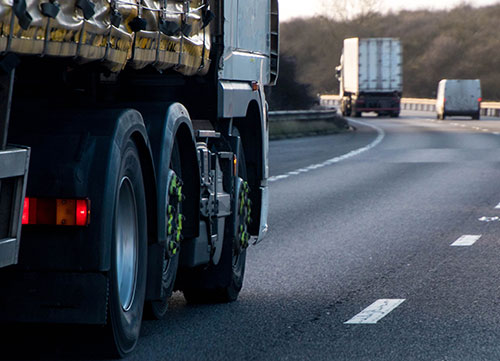Just under a year from the first UK Budget impacted by the global pandemic, Chancellor Rishi Sunak stood before parliament to unveil a 2021 Budget designed to help the country through the rest of the crisis.
This is an unprecedented era, one the Chancellor pointed out will have long-term impacts, with economic growth for the next five years likely to be 3% lower than it would have been in a non-COVID-19 world.
With businesses and peoples’ livelihoods on the line currently, plus the long-term health of both the economy and the environment to consider, this year’s Red Book offers a lot to digest.
If you run a fleet business, then fear not – we’ve delved into it so you don’t have to.
This is how The Budget 2021 affects fleet businesses across the UK.
The first headline news will be welcome across many sectors for both employers and employees alike. The furlough scheme first introduced last year in response to the pandemic will be extended to September 2021.
How big this news will be for your fleet and its workers is likely to depend on the industry your fleet operates in. For instance, those companies transporting consumer goods are unlikely to have seen anywhere near the same economic downturn as those in the events, fitness or hospitality sectors.
Nonetheless, it’s good to know that if it’s needed, the option to furlough employees will be there to support all involved until at least the early Autumn.
As a result, the furlough scheme plays a part in an unprecedented degree of economic state support, based on a level of borrowing unseen since the Second World War. While the chancellor admits that we’ll be repaying this money for years to come, it bodes well for the short and medium-term, and should allow for the UK to emerge from the pandemic on the front foot as far as jobs, industry and livelihoods are concerned.

With people advised to steer clear of public transport unless absolutely necessary, it simply made sense for the government to scrap a planned price hike on fuel costs. It’s now 11 years since we last saw a fuel duty increase – though we’d expect one next year to emphasise the Road to Zero strategy (more on that later).
This one is a bit of a double-edged sword. On one hand, no increase will be good news for businesses with a fleet of company cars. On the other, the lack of any mention in this year’s Budget means fleet businesses are currently in the dark about the Government’s long-term concerning company cars.
Cars, motorcycles and vans will all be subject to the rise in road tax in-line with inflation. However…

To support the haulage sector, road tax on HGVs is being frozen entirely for 2021-22. The HGV levy is also suspended for another 12 months starting this August.
Remember when we said we’d get to the Road to Zero strategy? Now’s the time.
First, road tax will stay at zero for all zero-emissions vehicles for another year – while last year’s scrapping of vehicle tax of zero-emission cars costing over £40,000 will also continue. (Company cars are a different story however, and will be subject to 1% vehicle tax from April 2021).
And if that wasn’t enough…
As part of The Budget 2021, the Government announced what it called a ‘Green Savings Bond.’ Designed to help the move to low carbon emission vehicles, this National Savings & Investments Bond will allow savers to invest money in environmentally-friendly projects, which should create a sea of green jobs. Included in these projects will be clean energy and initiatives for cleaner transport of all kinds – something that should ease the EVs transition for fleet managers everywhere.
Starting April 2023, tax paid on profits by businesses that make over £50,000 a year will increase from 19% to 25%. This will surely impact fleet bosses in a big way, with one of only two silver linings here being the fact that they now have two years to plan for this.
The other silver lining, we’ll talk about next…
In a move designed to encourage growth of industry, companies that invest in new plant and machinery assets will be able to claim back a ‘super deduction’ of 130% against those expenses – in the process offsetting at least some of the corporation tax shortfall we mentioned above.
Aligned with the 2030 deadline banning new petrol and diesel cars, and initiatives fuelled by the Green Savings Bond, this should encourage any and all UK-based businesses with manufacturing capabilities (including those with their own fleets) to develop greener manufacturing processes as soon as possible.
The final announcement of The Budget 2021 unveiled eight locations for post-Brexit freeports across England, where temporary tax breaks will make it easier for companies to do business.
Designed to help rejuvenate deprived areas, these freeports are sure to become popular destinations for fleets of all kinds in the years ahead. They’ll be located at the following places:
What the 2021 Budget means for your fleet business could well depend on a few key things:
It will be interesting to see how the fleet industry reacts to the 2021 Budget. We’d love to get your thoughts – so please let us know on LinkedIn, Facebook and Twitter.
Need help adjusting your fleet strategy in light of this year’s Budget? Visit our pages for fleet solutions, consumer options, and driver support to find how we can help.
Alternatively, call us on 0344 854 5100 or email CSalmon@sgfleet.com.